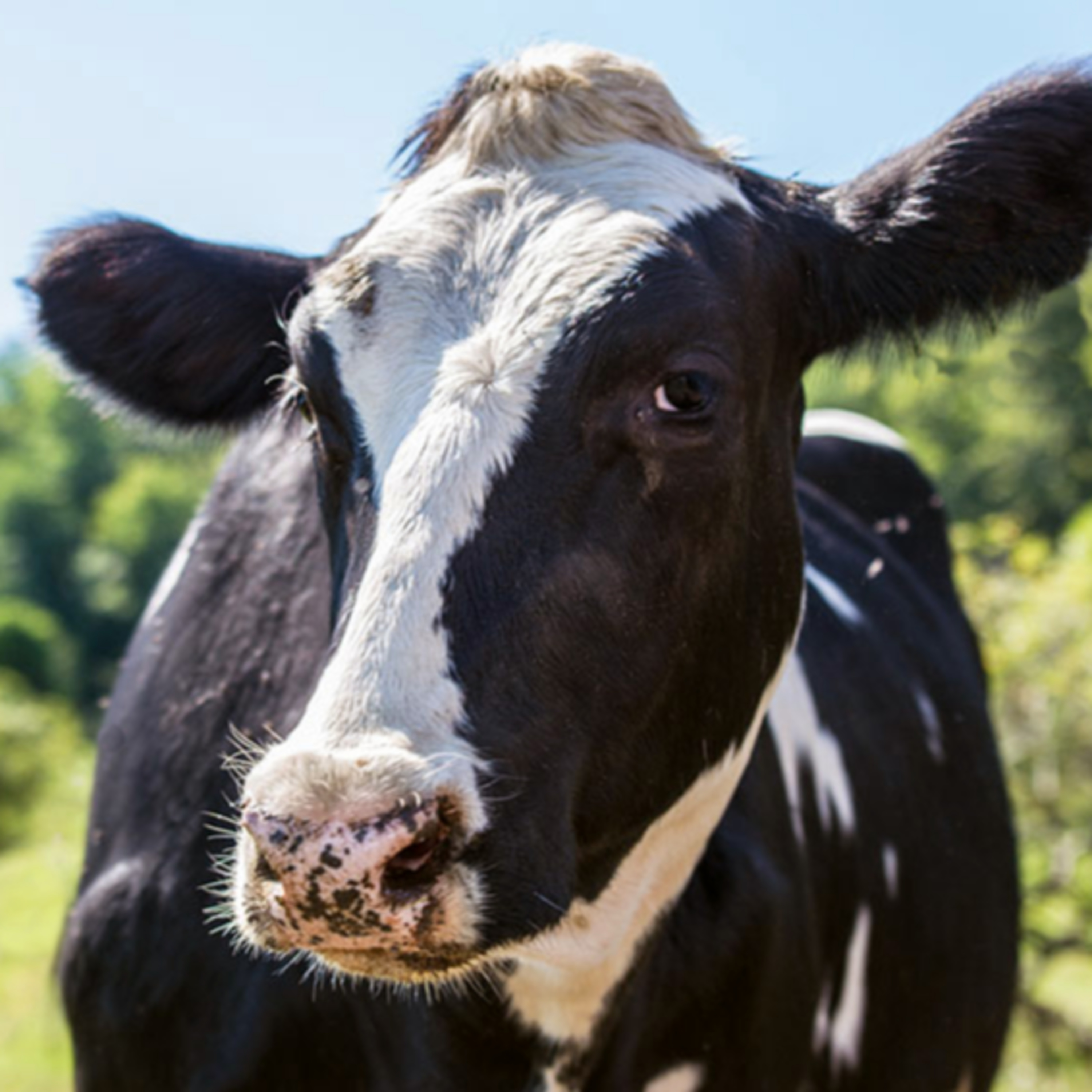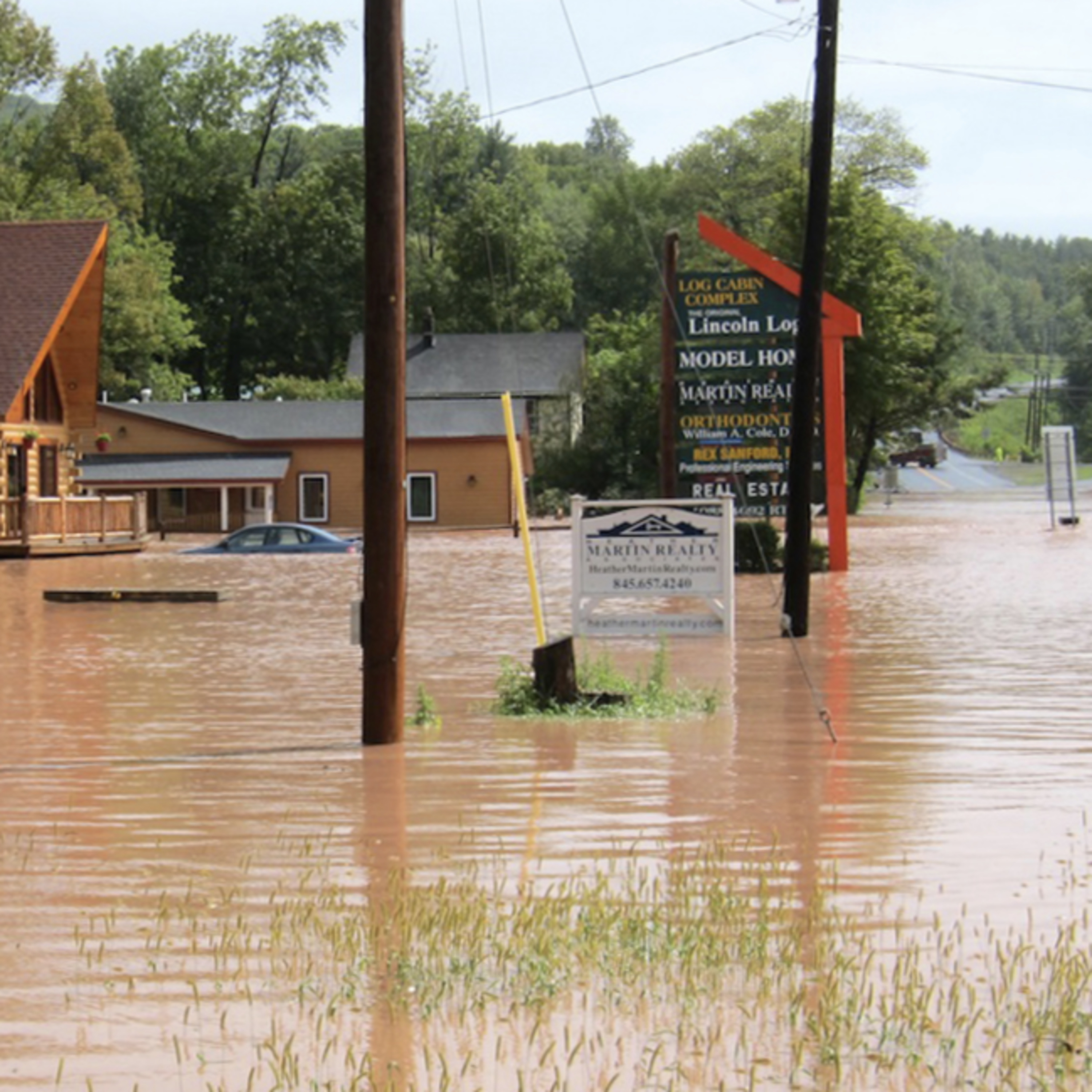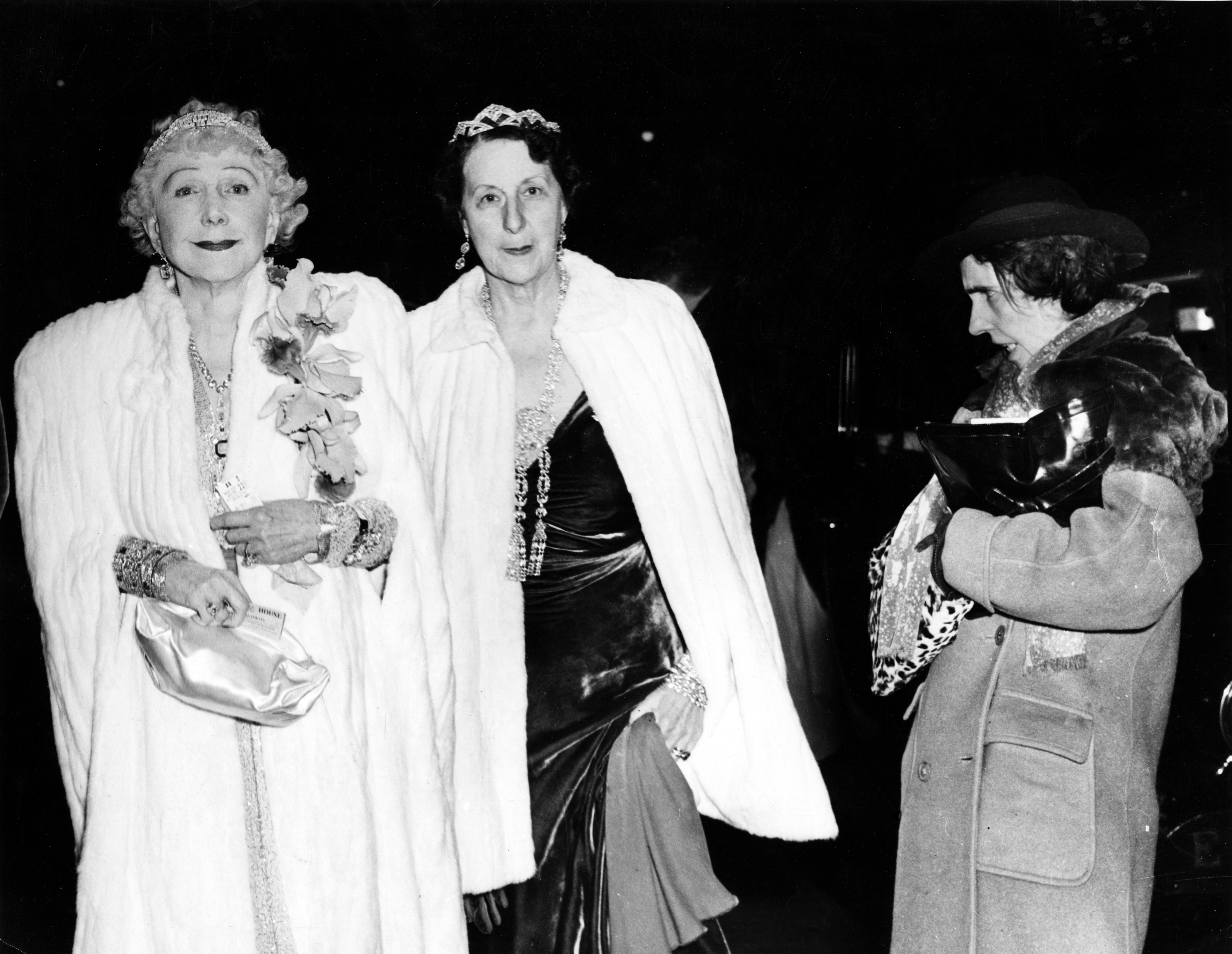Shows

Kaatscast: the Catskills PodcastWireless Watershed 📶 NYC's Initiative to Connect the CatskillsIn a new effort to enhance communications in the Catskills, the New York City Department of Environmental Protection (DEP) is partnering with New York's ConnectALL initiative to expand wireless and broadband access throughout the New York City watershed. The initiative was motivated by operational challenges faced by DEP staff due to poor cell coverage, and a recent Request for Information (RFI) seeks input from telecommunications providers and other stakeholders on how to eliminate cell phone dead zones. In this episode, DEP Commissioner Rohit "Rit" Aggarwala and Water Supply Deputy Commissioner Paul Rush join host Brett...
2025-02-2551 min
Kaatscast: the Catskills PodcastCatskills Thrillers: Reading Along with Kelli HugginsWashington Irving was an early author to set his fictional tale in the Catskills, but he certainly wasn't the last. If Rip Van Winkle were alive today, he'd have no shortage of contemporary Catskills suspense stories to help keep him awake. Kelli Huggins is on a mission to read all things "Catskills," and she hankers for horror. If a novel features a Catskills town, hotel, or reservoir, it will likely make it onto Kelli's reading list.
Here's a short list of Kelli's recent faves:
Just Like Mother, by Anne Heltzel
The Hotel Neversink, by A...
2023-01-3124 min
Views from the WatershedGone But Not Forgotten**If you're just joining this podcast, we recommend you listen to the earliest episodes first.** The Pepacton Cemetery is a remote and resonant place. Like all cemeteries, it’s a marker of loss-- not just the loss of individual people, but of entire communities that were displaced to build the water system. This episode features historian and grave restorer Marianne Greenfield.
If you're taking this tour in person, please play this episode at the Pepacton Cemetery. Accessibility: the cemetery is not wheelchair accessible, as the terrain is mowed grass and sloped. However, you can view it from th...
2021-11-1709 min
Views from the WatershedPutting the "Public" in Public LandsNYC owns a lot of land and water in the Catskills. You can walk (or paddle) on some of it because people advocated for that access, and did the work to build paths through it. Just watch out for snakes in the pond! This episode features trail builder Ann Roberti, president of the Catskill Mountain Club.
If you're taking this tour in person, please play this episode while on the Shavertown Trail or at the Shavertown Boat Launch at the Pepacton Reservoir. If you don't have a DEP access permit, please park in the area at the...
2021-11-1712 min
Views from the WatershedTapping the DelawareNew York City needed more water, it set out to tap the Delaware River (much to New Jersey's dismay!). The construction of the Pepacton Reservoir, which was completed in the mid-50s, and the displacement that it entailed, are still within the living memory of this part of the Catskills. This episode features historian Diane Galusha; Adam Bosch, DEP's Director of Public Affairs for the NYC water supply; and historian and grave restorer Marianne Greenfield.
If you're taking this tour in person, please play this episode at the Shavertown Boat Launch at the Pepacton Reservoir. If you d...
2021-11-1710 min
Views from the WatershedAfter the Storm (Part 2)Hurricane Irene raised concerns about the Gilboa Dam and the ability of water infrastructure to manage the massive amounts of water produced by large storms. How the DEP is preparing for the impacts of climate change in our future. This episode features Adam Bosch, DEP's Director of Public Affairs for the NYC water supply.
If you're taking this tour in person, please play this episode at Devasego Park in Prattsville, on the banks of Schoharie Creek. Accessibility: the parking lot has a hard-packed surface which is accessible, and the park is mowed grass which is less so...
2021-11-1504 min
Views from the WatershedAfter the Storm (Part 1)In 2011 Hurricane Irene roared through the Catskills "like a fire hose going through an anthill." But yet, the Catskills persisted. The story of Hurricane Irene is one of devastation and resilience. It also illuminates the complicated relationship between human development, water infrastructure, and natural forces. This episode features Catskills journalists Lissa Harris and Tim Knight, who covered Irene.
If you're taking this tour in person, please play this episode anywhere on Main Street in Prattsville. Accessibility: Downtown Prattsville is paved and wheelchair accessible. Please visit walkingthewatershed.com/podcasttour/listen.html to download a printed map, transcripts, accessibility...
2021-11-1515 min
Views from the WatershedThe Whole Farm PlanDairy farming is hard. In the 1990s, new watershed regulations would have made it even harder, if not impossible. Farmers pushed back, organized and eventually collaborated with the City to come up with a plan that would benefit everyone-- the City would pay farmers to modernize, and farmers would be able to keep cow poop out of the water. This episode features Fred Huneke, retired dairy farmer.
If you're taking this tour in person, please play this episode at the Hubbell Homestead historic sign on Route 30. Accessibility: the turnaround has a somewhat uneven hard-packed surface, but you ca...
2021-11-1510 min
Views from the WatershedA Seat At The TableA DEP Commissioner, a Catskillian, and a bunch of lawyers walk into a bar...
The 1990s were a turning point for the relationship between the Catskills and NYC. The Clean Water Act changed the way the City needed to manage its water supply, so they tried to impose stringent regulations on the watershed. Catskillians were having none of that! As watershed towns got together and organized, a new DEP Commissioner came to town with a very different approach from her predecessors. A pitcher of beer broke the ice, and the rest is history. This episode features two p...
2021-11-1526 min
Views from the WatershedUpgrading InfrastructureNYC’s water infrastructure is kind of like your household plumbing, but a lot bigger. What happens though, when, like your household plumbing, it springs a leak or needs to be replaced? This episode features Adam Bosch, DEP's Director of Public Affairs for the NYC water supply.
If you're taking this tour in person, please play this episode at the Shandaken Tunnel Portal on Route 28. Accessibility: the small parking lot has an uneven paved and gravel surface, with a grassy edge -- however you can see the portal from your car. Please visit walkingthewatershed.com/podcasttour/listen.ht...
2021-11-1305 min
Views from the WatershedUn-Muddying the WatersSediment, turbidity, and riparian buffers, oh my! There's a lot that can happen in a stream on its way to becoming NYC's drinking water. Watershed managers have re-engineered part of Stony Clove Creek so that it's cleaner and clearer...and doesn't flood downtown Phoenicia anymore. This episode features Tim Koch, Stream Educator and Hydrologist with the Ashokan Watershed Stream Management Program (AWSMP) and Cornell Cooperative Extension of Ulster County.
If you're taking this tour in person, please play this episode at Simpson Mini-Park in downtown Phoenicia. Accessibility: the park has grassy turf and is not easily wheelchair...
2021-11-1310 min
Views from the WatershedTough ChoicesThere’s a lot of water in the Catskills! Flooding is a constant threat, made worse by climate change, and most of the businesses in downtown Boiceville will eventually have to move because of it. A vacant lot is a marker of the profoundly tough choices the town has to make in planning for future flooding. This episode features Aaron Bennett, Deputy Chief of Watershed Lands and Community Planning with the NYC DEP.
If you're taking this tour in person, please play this episode at the vacant lot next to the Nuvance Health parking lot in downtown Bo...
2021-11-1207 min
Views from the WatershedTrout and TourismThe Catskills are considered to be the birthplace of fly fishing in the US. Here, fishing can be an occupation, a lifeline, or a hobby. Anglers (and fish too!) are important stakeholders in the watershed—NYC's control over the water in Esopus Creek and other rivers, and the fishing community's needs for clear, cold water are deeply intertwined. This episode features angler and fishing guide Todd Spire.
If you're taking this tour in person, please play this episode at the bridge over Esopus Creek at the Ashokan Rail Trail, Boiceville Bridge, less than a 1/2 mile from the pa...
2021-11-1209 min
Views from the WatershedA Miracle of Modern EngineeringThe NYC water supply is enormous! It serves 9.5 million people every day, and has a capacity of 570 billion gallons. That's the equivalent of 2,059 Empire State Buildings full of water! NYC's Department of Environmental Protection (DEP) owns, operates, and manages the water supply, with a little help from their friend, gravity. This episode features Adam Bosch, DEP's Director of Public Affairs for the NYC water supply.
If you're taking this tour in person, please play this episode at the Ashokan Reservoir Promenade, East Parking Lot (the "Frying Pan"). This site is paved and is wheelchair accessible. Please visit wa...
2021-11-0107 min
Views from the WatershedA Difficult HistoryAs New York City grew, so did its need for clean water. So city leaders decided to tap the Esopus Creek in the Catskills. The construction of the Catskills System— the Ashokan and Schoharie reservoirs and the Catskill Aqueduct— displaced thousands of people through eminent domain, uprooting tight-knit rural communities and causing generational bitterness towards the City. This episode features historian Diane Galusha, author of Liquid Assets: A History of New York City's Water System.
If you're taking this tour in person, please play this episode at the Ashokan Reservoir Promenade, East Parking Lot (the "Frying Pan"). This...
2021-11-0112 min
Views from the WatershedIntroduction: Connected by WaterMost New York City residents don't know where their water comes from (except from out of the tap!) Your tour guide, Lize Mogel, gives a little bit of the backstory to NYC's drinking water, 90% of which comes from the Catskills, 100+ miles from the City. New York City and the Catskills are physically and socially connected by water, but their relationship has a complicated history...
If you're taking this tour in person, you can play this episode anywhere. Please visit walkingthewatershed.com/podcasttour/listen.html to download a printed map, transcripts, accessibility info, and other important information.
2021-10-3106 min
Views from the WatershedStart Here!Start here for important information about how to use this podcast tour; a land acknowledgement; and a couple of interesting things to notice along the way. If you're taking this tour in person, please visit walkingthewatershed.com/podcasttour/listen.html to download a printed map, transcripts, accessibility info, and other important information.
2021-10-3102 min
Kaatscast: the Catskills PodcastWatershed Moments: NYC and the Catskills Past and PresentFor more than a century, New York City has relied on the Catskills for its abundant supply of clean, soft drinking water. The Catskills' relationship with NYC has been a complicated one, including the staggering loss of entire communities, and a multitude of mutual benefits along the way.
This week, Adam Bosch recounts the history of that relationship, plus we hear from the Olive Free Library's Melissa McHugh on an exhibit showcasing life before the Ashokan reservoir. Then, we check in with with Lize Mogel, producer of a comprehensive new tour of the watershed.
2021-10-1230 min
Exiles on 12th StreetGraphic New YorkFrom larger-than-life characters to the minutiae of manhole covers, our first episode, Graphic New York, explores the city’s past and present. Join us as we hits the streets with writer and critic Luc Sante, author of Low Life; walker Matt Green, a man on a mission to walk every street in the five boroughs; radical counter-cartographer Lize Mogel; and Chris Bonanos, biographer of cult photographer Weegee the Famous.
2019-02-0645 min
Bookbinding NowMap as Metaphor 1111a. Map as Metaphor 1 This is the first panel in a three-part series investigating how the map can be understood as a metaphor, both as material artifact and cultural object as well as an artistic tool. The series was organized by The Center for Book Arts and made possible through a grant by the New York Chapter of the American Painting History Association. Maps and atlases are an integral part of the history of the book as well as a physical and conceptual resource of book arts. This program of three panels features scholars, scientists, and artists who...
2016-07-0600 min